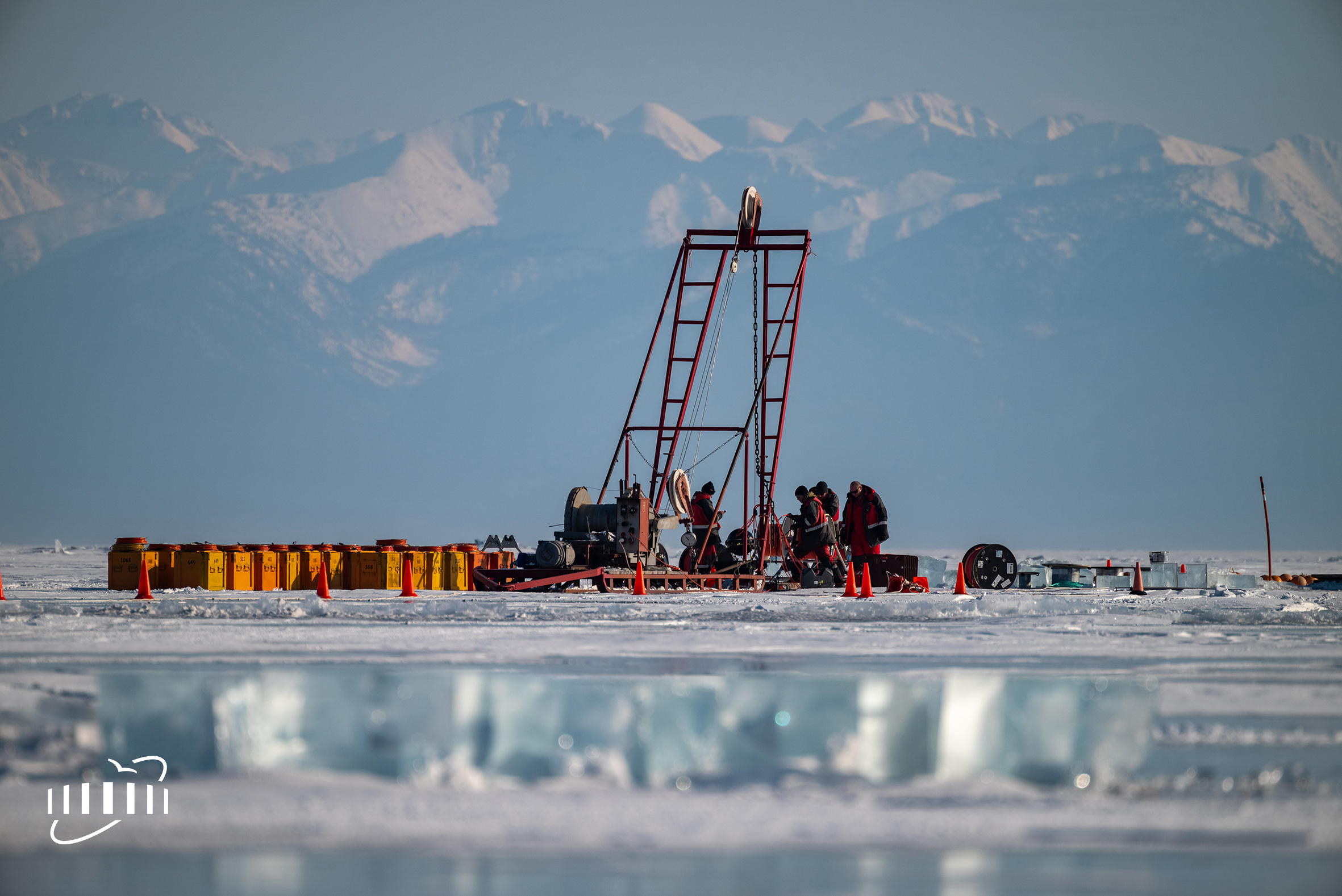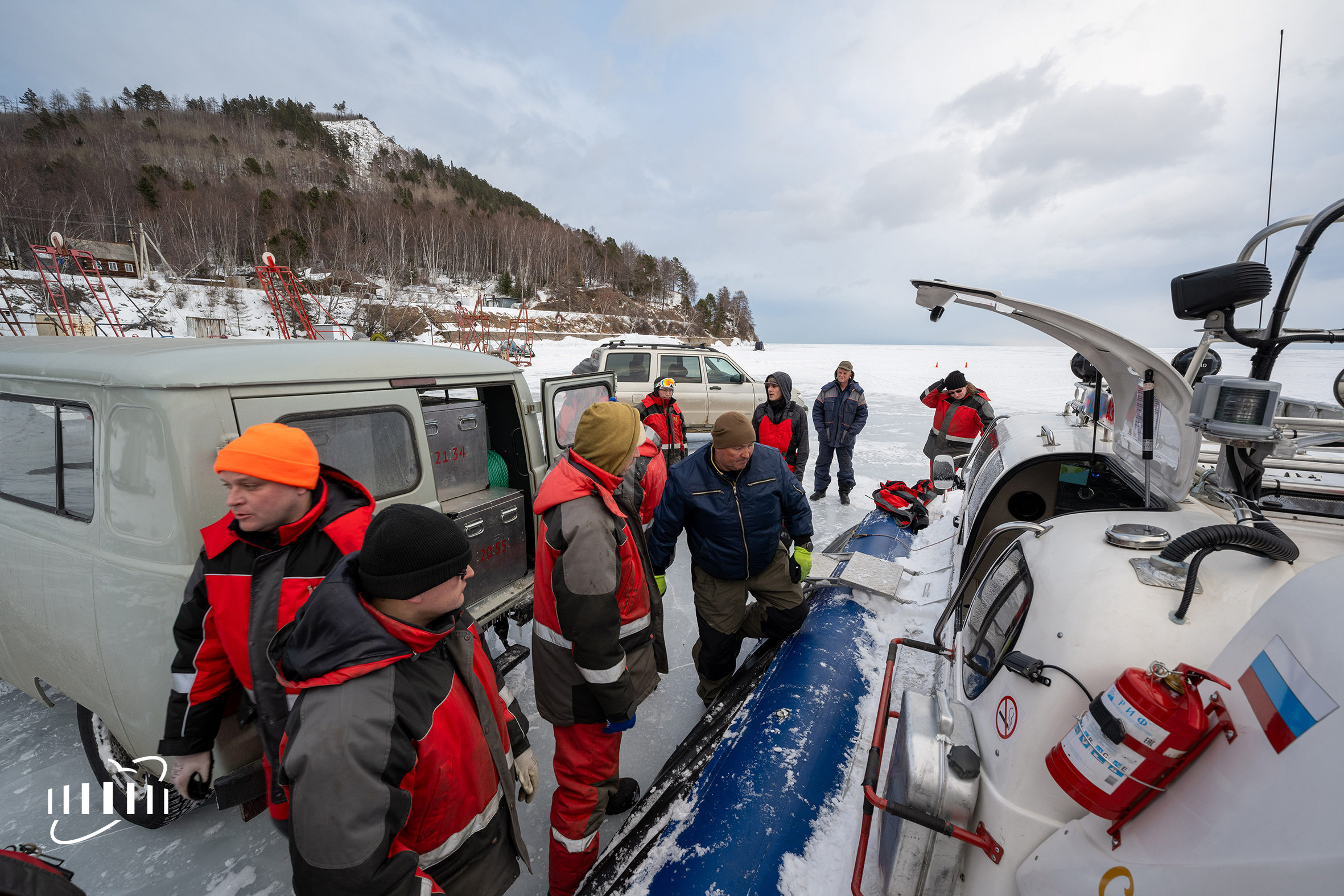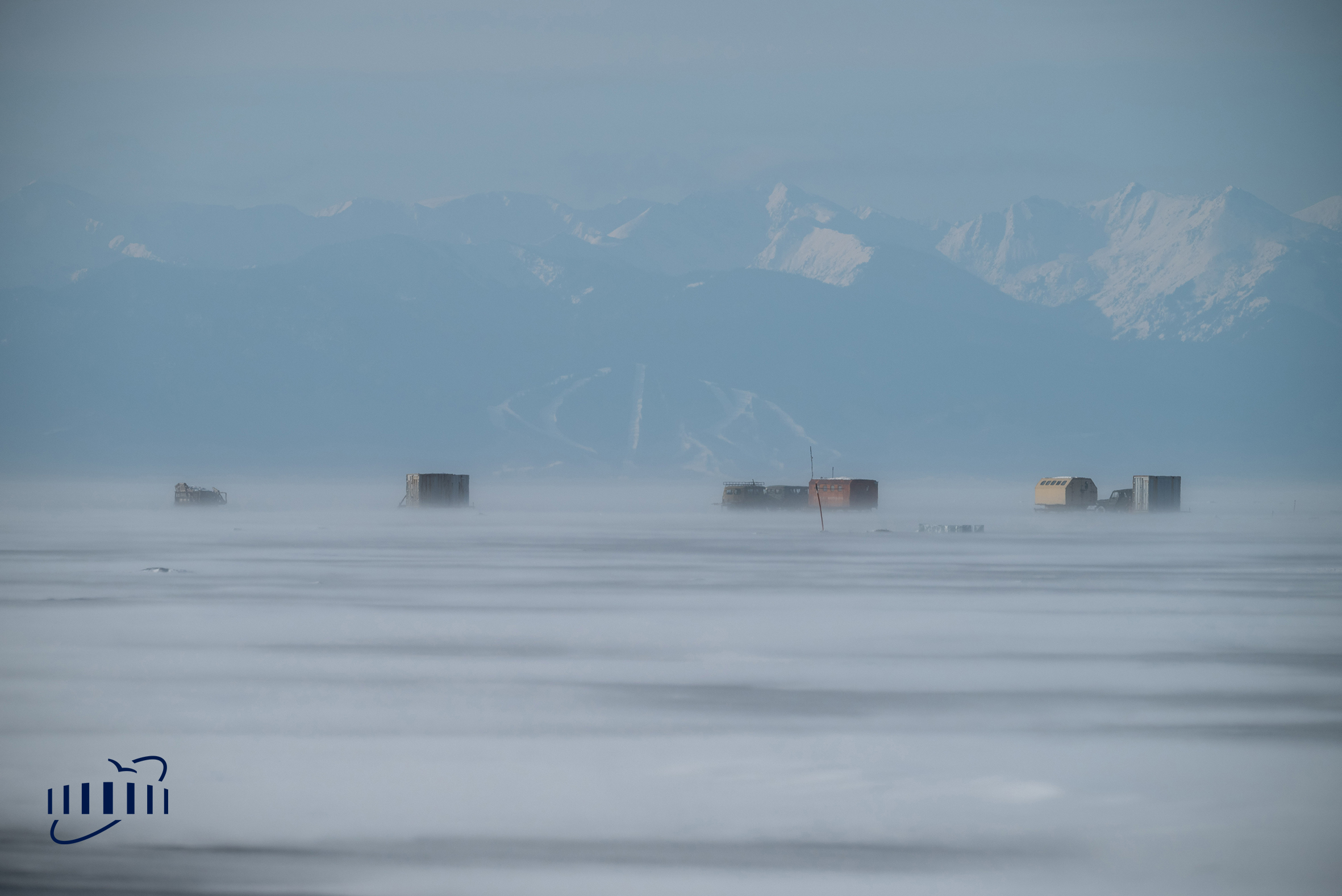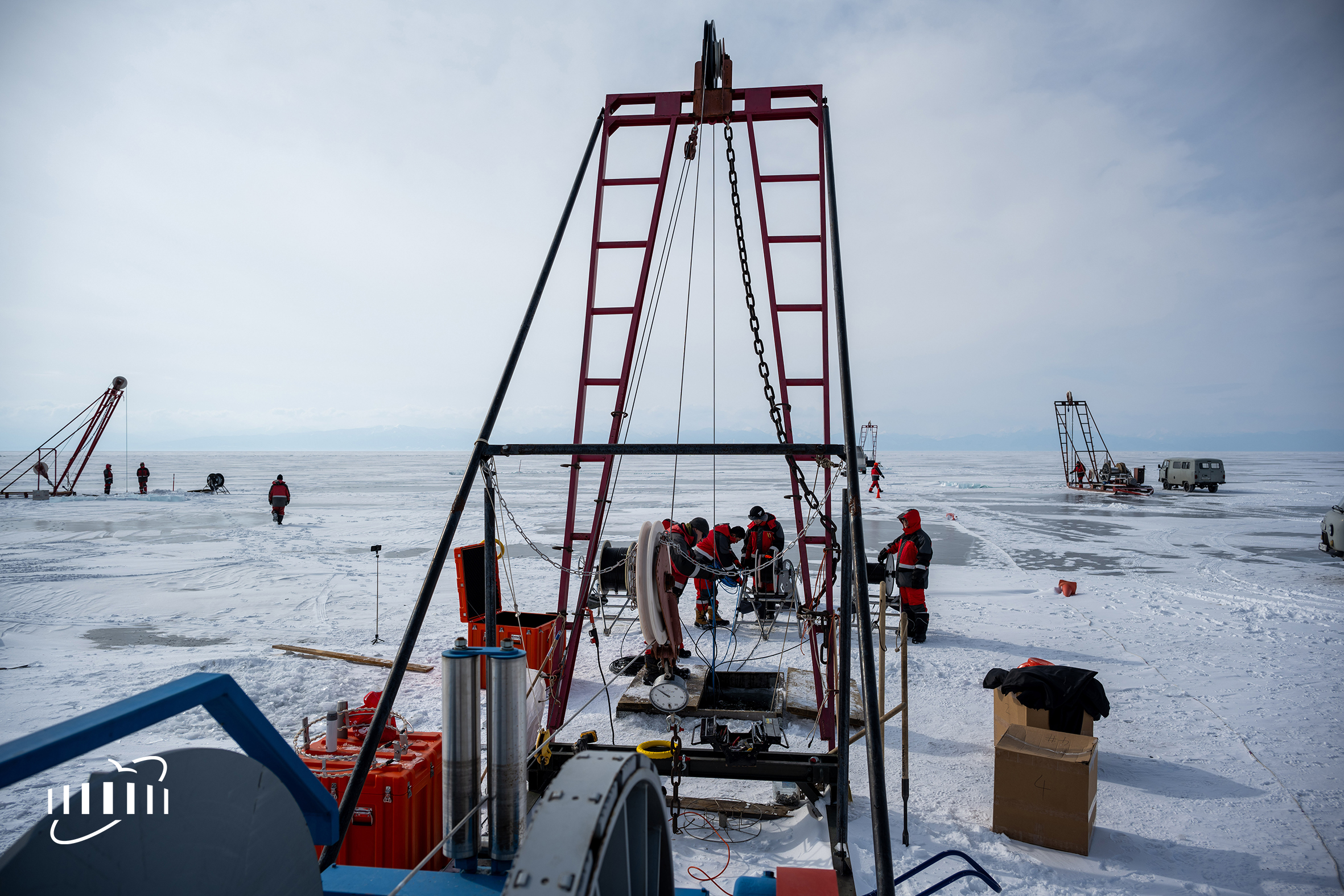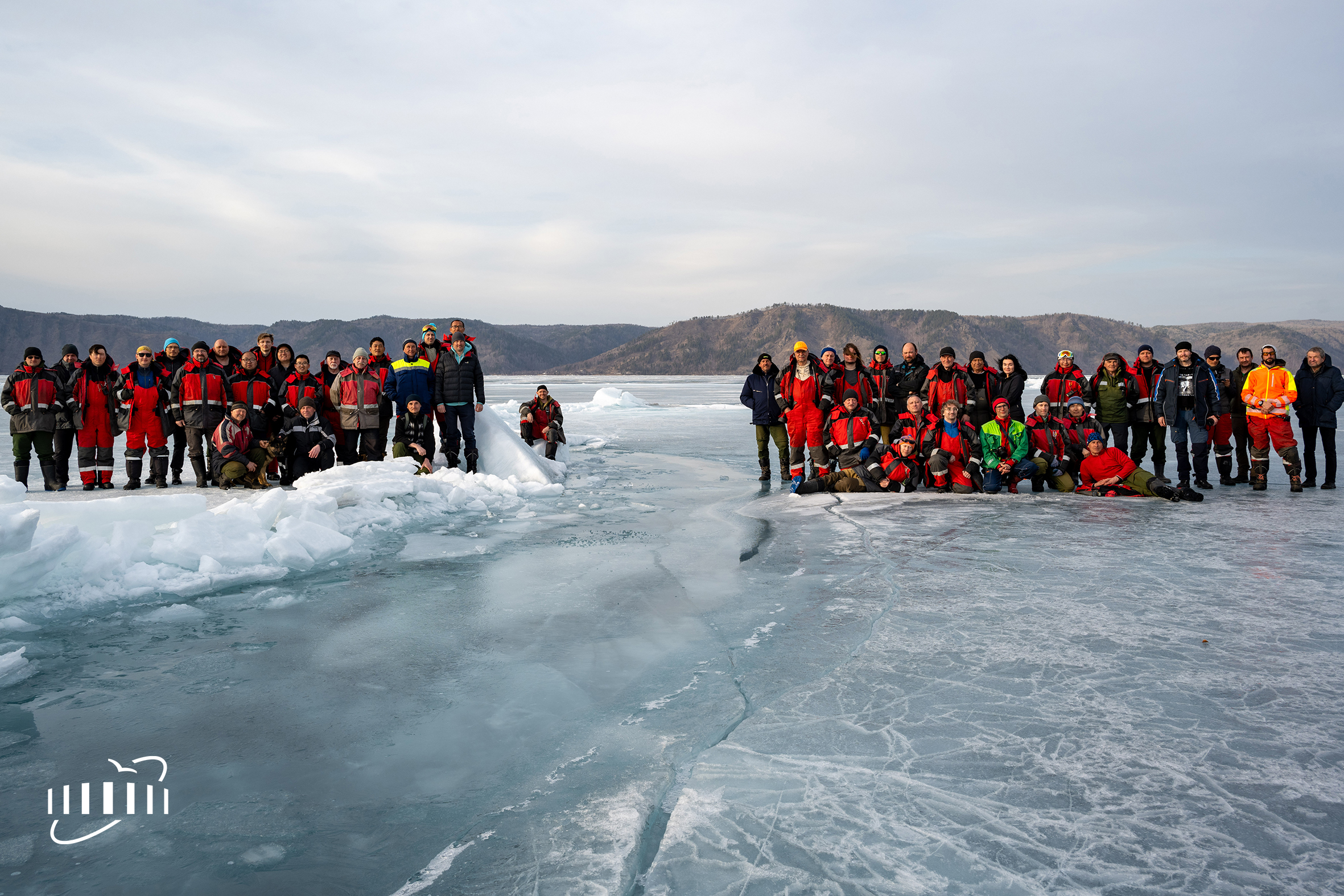2025 expedition to deploy Baikal-GVD Telescope completed
News, 01 April 2025
The annual expedition to build the neutrino telescope at Lake Baikal finished. The Baikal-GVD Project participants deployed the facility’s 14th cluster consistings of 8 strings, and another one is to be added in the future. The specialists repaired and modernised clusters 1 and 13, along with a prototype of the next-generation neutrino telescope string, deployed jointly with the Institute of High Energy Physics (IHEP, Beijing). A full-scale string with optical modules based on 20-inch photomultipliers was put into operation as well.
In addition to a rise in the number of specialists at the neutrino observatory, colleagues from Irkutsk State University and the Limnological Institute of the Siberian Branch of the Russian Academy of Sciences joined the expedition to carry out several hydrology experiments.
Work at the project’s ice camp completed two weeks earlier due to the difficult ice conditions during the winter and the entire expedition. Snowless weather after the lake froze over, large diurnal temperature variation at the beginning of the expedition, and small thickness of ice caused the formation of many cracks in the ice cover. The lack of snow on the ice in the second half of the expedition, with bright sun and warm weather, dramatically changed the ice’s structure, decreasing its bearing capacity despite thickness remaining the same.
This led to the camp closing ahead of schedule, regardless of the efforts made to deliver equipment to it for further deployment. Specialists face similar challenges during expeditions approximately every decade, which serve as important experiences for the collaboration. Nevertheless, a significant number of objectives were achieved. Leaving the ice ahead of schedule allowed sending the now available qualified personnel to reorganize the coastal computing centre for further development of the Baikal-GVD Detector.
